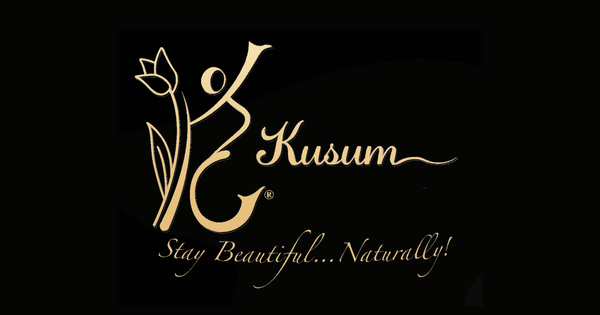
Nurturing For Better Tomorrow : Part 1
Share
Introduction: Nurturing For Better Tomorrow.
Conservation efforts for our planet and its natural habitat are dating back to the late 1800s [1]. Simply put, this is a push towards utilizing natural resources in a manner that does not alter, spoil, or deplete.
Human endeavors to create a habitable world have impacted our planet with detrimental effects. Increased transportation and materials use led to the rapid destruction of forests, climate change, seawater, and marine environmental change.
Increased use of Genetically Modified Organisms (GMOs), chemicals to change color, taste, and consistency of cosmetics, makeup products, shower products, and food has increased the risk of various diseases in humans, including cancer. The use of potent chemicals to preserve food, cosmetics, and shower products causes multiple skin issues.
This series of blog posts focus on core values of natural conservation, ethical sourcing of supplies, sustainable manufacturing, responsible consumption, and post-consumption recycling.
We will also discuss simple ways to identify products sustainably made with natural resources. We will share tips on manufacturers' efforts on reducing waste while providing quality products.
Consumer Conservation Ethic
All living creatures of this planet are a consumer of some sort. Those living in the developed and developing parts of the earth consume the most resources available to us. A well-informed consumer should utilize available resources with conservation in mind.
Former US president Theodor Roosevelt initiated a conservation ethic in the United States.
"The conservation of natural resources is the fundamental problem. Unless we solve that problem, it will avail us little to solve all others."
- Theodor Roosevelt [2]
Use nature-derived products, conserve for a better tomorrow!
The "R" for Restoration.
Four "R" s express consumer conservation ethics: "Rethink, Reduce, Recycle, Repair." [1] Several measures such as moral purchasing, ethical purchasing, sustainable and renewable resources, and preventing harm to air, soil, and water quality forms the basis of consumer conservation ethics.
Rethink
A recent biodiversity study with data from 2011 to 2020 published in science magazine [3] demonstrated some increase in protected land and marine areas globally. Still, the resources to these areas remain low and increased social pressure. The scientists and conservationists propose various models to improve conservations using goal-based methods for 2021 to 2030 [4].
It is clear that assigning a piece of land or water as a protected area does not reduce human activity's impact on natural resources. It is our responsibility to think of multi-faceted ideas to aid the sensible consumption of available resources. How do we do that?
A visual attraction forms the basis of modern marketing, whether online or in stores. Do you recollect stores offering virtual experience, in-room experience from appliances to shoes? This method is referred to as "visual merchandising" and has a significant impact on various products' sales. [5]
Time to apply this science and "Rethink." We buy numerous products packaged in shiny, attractive boxes and wraps. But the box and the "protective wrap" go straight to the trashcan. No need to juggle, all of us have done it frequently! Even worse, how much of that thin plastic is recyclable?
If a product were available without unnecessary boxes and wraps, you would prevent so much waste! Modern transportation can deliver products without excessive use of resources.
At Kusum Cosmetics, we promote conservation by reducing unnecessary packaging and creating efficient transportation methods to reduce waste. Instead of using attractive boxes and wraps, we choose to connect our clients by staying transparent on our bottling! More on labels and packaging.
Reduce
Reducing the use of material that is not recyclable or biodegradable effectively practices natural conservation. Many cosmetic products use synthetic materials, chemically formulated pesticides, preservatives, acids, artificial colors, and fragrances.
Synthetic material is hard to change by natural methods and much cheaper when produced in bulk. Using such materials translates into increased shelf life and thus more profit for someone. However, these benefits come at the cost of ill effects on you and your loved ones' skin and health.
Let everyone enjoy nature in its purest form!
Pillars of nature created Kusum. We promote naturally derived ingredients in their purest form and minimize the use of non-biodegradable materials. Our bottling material is recyclable, and we use naturally derived organic ingredients and preservatives. You can participate in nature conservation by replacing products made with natural ingredients. When used sensibly, natural ingredients are healthy, bio-friendly, and harmless to other components of nature.
Recycle
Recycling produces new material from processing waste material. This concept is not new; it has been a common practice for most human history [6] Industrial revolution has opened the avenue to effectively recycling various materials. Consumer participation on an individual level is vital for any recycling program to remain effective.
In other words, we, the consumers, must thoughtfully separate recyclable material and deposit according to local standards to support recycling programs. Many countries, states, and cities have adopted legislation that minimizes non-recyclable materials and promotes ways to increase recyclable material deposition. Trash collection agencies in various parts of the world provide labeled containers for organic waste (going to farmland as fertilizer), recyclable waste (going to recycling plant), and remaining waste (going for landfill/other disposition).
Kusum Cosmetics participates in recycling by choosing suppliers that intend to use recyclable packaging and employing nearly 100% post-consumer recyclable materials for product packaging.
Repair
Think of gluing a torn paper! Plan to use our bottles in creative ways for as long as you can! This concept helps reduce strain on the ecosystem by reusing the same material in various ways to maximize efficiency. Consider reusing an empty bottle of shower gel by filling it with natural hand soap! 
Best from Waste. Torn glove, used tape, discarded ribbon. Repaired with love!
How do you feel after reading through this brief discussion? Let us know. We hope that you found this post informative and useful. You can read Part 2 of this blog post here.
Disclaimer-This website and content, comment, writing, or authors/contributors/writers do not provide or suggest medical, legal, or professional advice, opinion, or service. The information share on this website is not intended to diagnose, treat, cure, or prevent any disease.
Reference:
[1] https://en.wikipedia.org/wiki/Nature_conservation
[2] Leopold, A. (1966) A Sand County Almanac New York: Oxford University Press.
[3] Visconti P, Butchart SM, Brooks TM et al. Protected area targets post-2020. Science. Vol 364, Issue 6437, pp.239-241.
[4] Rethinking Conservation efforts for improved biodiversity. https://www.sciencedaily.com/releases/2019/04/190411145110.htm
[5] https://www.orderhive.com/visual-merchandising-affect-store-sales
[6] https://en.wikipedia.org/wiki/Recycling


